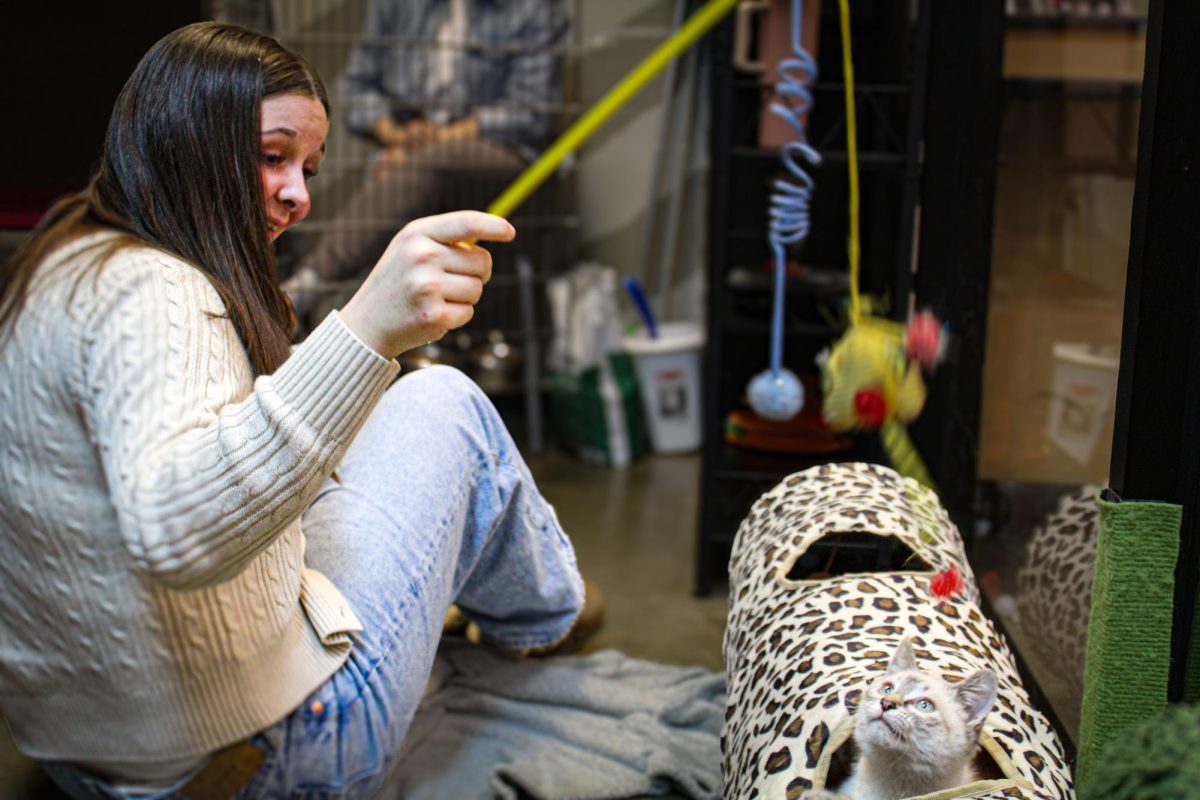It all leads up to this. Your hours of studying and all that time you’ve spent dreaming about your future culminate into the college application season during the first semester of senior year. However, from writing essays to filling out profiles, applications can be tricky and overwhelming. Nordic has interviewed past Inglemoor alumni and highlighted what these students consider to be the most important advice for navigating the college application process. Before you begin reading, remember to relax.
“Don’t stress too much — I remember how stressed my friends and I were in September,” Stanford student Surya Hendry said. “By the next year, we were all at schools we liked. No matter where you go, college is a million times better than high school — I promise.”
Choosing a College + Major
Hendry said that she advises current students to consider a wide range of criteria when choosing colleges to apply to, especially in looking beyond factors such as name prestige. She said that one important example to consider in the present day is the effectiveness of the institution’s response to the pandemic; how well schools have treated their students during this time is reflective of how much they truly care about their student body.
“I’m fortunate to say that I do like where I ended up, but when I was applying, I should have thought more about what environments would make me happy,” Hendry said. “Prioritize happiness! Choose a school that sparks joy! Things that may seem small as you apply — like an absence or presence of Greek life, faculty diversity, or presence of mental health support — can become massive later on. I would think more seriously about what I value in my daily life, and choose based on that.”
Current University of Utah student Margot Reynolds said that she recommends that students take advantage of the resources available to them when choosing colleges. She said that websites such as U.S. News, Niche and personal blogs available online were particularly helpful in assessing schools. Reynolds also said that the school tours she participated in were an important influence on her choices. Due to the Covid-19 pandemic, most universities this year have virtual tour and seminar options students can register for.
“I tried to choose a guide that I felt reflected me, and stayed after to talk to them about what they liked and disliked about the school,” Reynolds said. “I toured UC Berkeley and learned from my guide that some introductory classes have more students than seats in the room, and that late students have to watch the lecture on a livestream outside of the room. I knew that if I was paying $60,000 per year for an education, I did not want to be watching on a TV screen instead of sitting in the classroom.”
All-in-all, however, choosing colleges is a very personal process. UW Public Health student Maya Oleynikova said a variety of factors specific to her own circumstances and future plans influenced her decision when choosing a college.
“I cross-checked with my other criteria, such as cost, location, size, and their policy in regards to IB credits,” Oleynikova said. “I was pretty set on attending UW from the beginning because I was confident that I would get in, and I had a lot of connections for jobs and internships in Seattle already. Additionally, it would save a lot of money.”
Western Washington University student Jack Murphy said that he encourages students to apply to more than just their dream university. Although the number of colleges you apply to will vary for everyone, University of Washington student Evelynn Li recommends applying to around 10.
“I think it’s probably best to find 5-6 colleges you really set your heart on, and then like 3-4 colleges that you’d enjoy even though they’re not your top choices,” she said.
Reynolds said that she advises students to avoid letting others influence their decisions in choosing where to apply.
“Don’t ignore gut feelings that a school just isn’t right — sometimes you just know,” Reynolds said. “Remember that this is about you and what you need.”
Essays
Although intimidating and time consuming, essays were unanimously agreed upon by the interviewed alumni as the most important part of a college application. UW Computer Engineering and Business Administration student Uzair Zaman said that colleges genuinely care about discovering who the applicant is as a person outside of their academic achievements, and one of the only ways to showcase that on an otherwise standardized application is through the essays.
“Explaining who I was as a student and as a person was crucial because colleges really want to see who the applicant is when they apply. They want to get to know each applicant, and so sharing a personal experience or lesson is a really nice way to give college admissions officers information about yourself,” Zaman said.
Li said that the essays are instrumental in separating applicants from each other and that choosing an appropriate and personal topic can help demonstrate an applicant’s individuality, leading to a more memorable application overall.
“The essay is really where you can express yourself as an individual and is an opportunity for you to separate yourself from other students in the application process. Grades are universal, but the essay is where students can show their personality, their humor, their character, etc,” she said.
While everyone’s approach to the college essay is different, Hendry’s first step in her writing process was to brainstorm ideas and free write in a notebook; she said that writing down every thought and story allowed her to separate her ideas and decipher which ones would lend themselves to a powerful essay.
“Before I wrote my actual essays, I wrote a lot of stuff down in a notebook. I thought about what was important to me, what I wanted to convey, what memories really mattered,” Hendry said. “I wrote a lot of silly thoughts and ideas and small stories down before sitting down to write my college essays. That process helped me turn in authentic, compelling essays.”
Deciding the topic of a college essay is a personal process that will vary significantly between applicants. However, Reynolds said that she recommends writing about growth, a theme that can show values and characteristics that colleges are often searching for.
“Writing about an experience of growth is a really good idea — colleges want to invite mature and responsible people to their campuses, and showing that you have made mistakes or endured hardship but came out of the experience a better person is the best way to tell them that you are the kind of student that they want representing their name,” Reynolds said.
Analyzing personal experiences and choices is another idea that Reynolds believes could make a strong essay.
“I think that showing your ability to honestly assess your choices and experiences is something that colleges look for because it shows maturity and accountability,” she said.
On the other hand, Hendry said that not shying away from unconventional topics and stories is another way to build a personal connection with the application reader and also get their attention.
“My essays were also really … weird. If you’re just starting to write your essays now, don’t be afraid to write something totally outside of the box,” Hendry said. “I wrote a lot about alien universes and knights in shining armor because I wanted the admissions officers to really get to know my personality. It definitely caught their attention.”
Interviews
Some universities also organize interviews with alumni. Although interviews are usually optional for most schools, they can sometimes serve as a supplemental opportunity to demonstrate interest in the school, and they allow the student to present new aspects of their personality apart from their grades and test scores, according to CollegeBoard.
Oleynikova, who attended a Harvard interview, said that she felt the interview enabled her to tell her story and that she enjoyed talking to another person face-to-face, although she does recommend that you take time to prepare beforehand.
“Some advice would be to bring your resume and brainstorm what you will talk about,” Oleynikova said. “In my experience, they will not guide the conversation at all so you have to go in there knowing what you are going to say.”
Reynolds also advised that students remember to maintain formality during all aspects of the interview process. She said that students should let the interviewer set the tone and that they should remember to use Mr./Mrs./Mx. when addressing interviewers. Ultimately, she said she encourages students to be candid and avoid sticking to a script.
“I was careful to prepare some questions about what their experience was like and ask what they wished they had done differently during their time at college,” Reynolds said. “Be an active listener and ask questions about the things that they tell you. The longer your interview goes, the better —it should be more like a conversation than a series of questions and answers.”
Advice
Overall, a common thread among general advice for applicants is to start on your application early, no matter what it is you start on. Senior year is typically a busy time even without the added work of college applications! Reynolds recommends beginning the profile section of the application, which is filled out once and then sent to each college you apply to, before the year starts.
“I wish that I had started my basic Common App and Coalition profiles during the summer before my senior year so that I could have focused more time on the individual applications when I was busy with other schoolwork,” Reynolds said.
In addition to starting the profile, Li said that another important portion to get a head start on are the essays. After writing the essays, she recommends that a variety of people with different connections to the applicant edit the essays for best results.
“Start on your essays early and get lots of people to review it: not only students and peers your own age, but try to find adults who would be willing to review it,” Li said. “Get older siblings and their friends in on it too! They likely have more experience with the application process and can likely give you some good pointers.”
Li said that doing a substantial amount of research while deciding which schools to apply to is valuable, and that although she would personally apply to more colleges, she also cautions to be careful about the workload that brings.
“I would also apply for more colleges, or do more research about what universities I’d want to apply to. Even though it’s good to apply to more so you have options, I think that you can also spread yourself too thin,” she said.
Finally, Reynolds said that going over your application after it’s finished can help catch mistakes.
“Proofread your applications before you turn them in. Someone in my grade submitted his Common Apps with his last name spelled wrong … for all of his schools. Don’t do that,” Reynolds said.
Conclusion
With application advice coming from teachers, peers, and now this article, it’s easy to get overwhelmed with everything that applying to college entails. In the end, however, Reynolds said that practically any college will provide an environment where students can grow and thrive. She said that while it’s important to set goals for yourself, understand that much of the process is about adjusting to the surroundings. Don’t expect that everything will go as planned.
“You will probably do okay anywhere. Remember that everyone’s path will look different. Some people will graduate in 3 years, others in 5 or 6. Set goals but be prepared that everything will change, and be ready to adapt,” Reynolds said.
Each graduate offered encouraging words to current seniors. Zaman said that students should, above all, stay true to themselves.
“Be yourself, ask for people to read over your essays, [and] remember that you’ll be okay no matter where you end up,” Zaman said. “Believe in yourself and trust the process. You got this.”

















